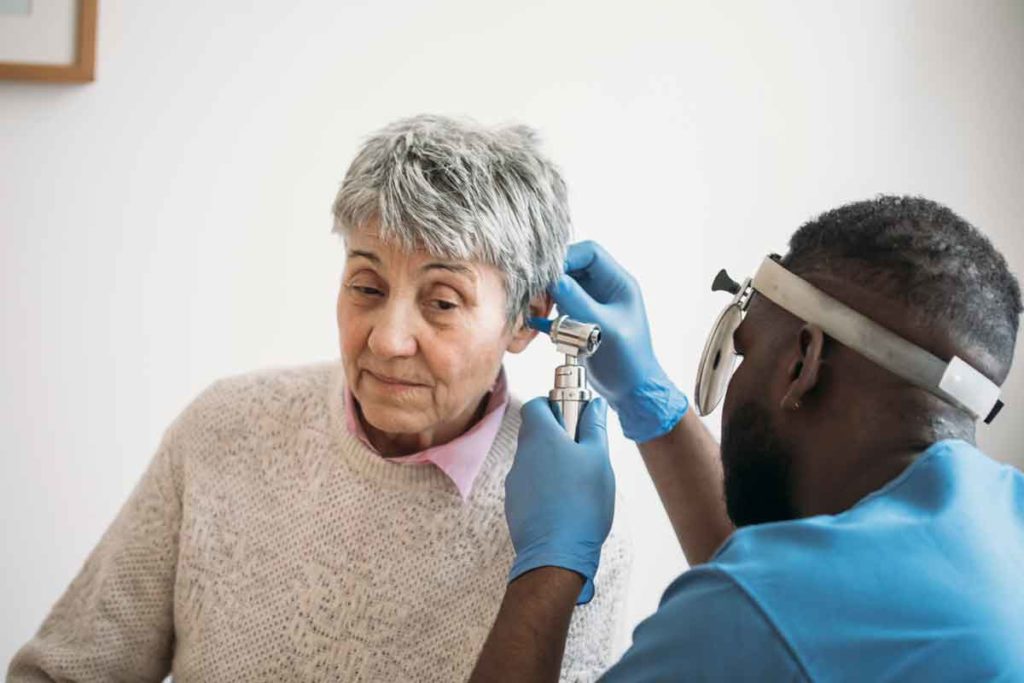Whooshing, ringing, pulsing – hearing these noises could be a sign that you have tinnitus. With tinnitus, the noise isn’t coming from an outside source. Instead, it’s inside your head.
Bradley Kesser, MD, a UVA Health ear and hearing specialist, walks us through some of the frustrations of dealing with this condition and how to manage tinnitus.
A Common Hearing Condition
“Not a week goes by when I don’t see someone in my clinic complaining of a strange and constant phantom sound in one of their ears, or in both ears,” says Kesser. “The noise is loud, distracting, and scary – and it doesn’t go away.”
“As a neurotologist – that’s an ear specialist – I have seen approximately 2,500 tinnitus patients during my 20-year career,” says Kesser. “That might sound like a lot, but it shouldn’t be a surprise; up to 15% of the U.S. population experiences tinnitus. That’s more than 50 million Americans.”
Roughly 20 million of those have burdensome, chronic tinnitus. Another 2 million struggle with extreme and debilitating tinnitus. The condition seems to strike middle-aged people the most. But Kesser has seen younger patients and even teenagers with tinnitus.”
What is Tinnitus?
Tinnitus is usually described as a ringing sound in one or both ears. Ringing isn’t the only sound you might hear. Other types of noises people describe include:
- Roaring
- Pulsing
- Blowing
- Rumbling
- Clicking
- Buzzing
- Hissing
- Combinations of these sounds
Hear a Pulse or Clicking? Seek Care
“People who hear their pulse in one or both ears – this is called pulsatile or pulse-synchronous tinnitus – should seek medical attention,” notes Kesser.
“The cause of pulsatile tinnitus, often described as a whooshing sound coinciding with the pulse, may be due to an abnormality in one of the blood vessels near the ear. Often, these abnormalities are treatable and the pulsatile tinnitus can be reduced or even eliminated.”
Issues With Hearing? Think it’s Tinnitus?
Our hearing specialists can check your ears and help you with your condition.
“Someone with a clicking or thumping-type tinnitus should also have a more thorough evaluation, along with those awakened by the noise; that can be a sign of a rare form of tinnitus.”
How Can You Prevent Tinnitus?
The best step is to protect your hearing.
Kesser says, “One way to stop tinnitus before it starts: Wear hearing protection when in noisy places.”
While much about this condition remains a mystery, clinicians and researchers know that loud noise can trigger tinnitus. “Firearms, power tools, heavy machinery, MRI scans, and blaring music from even a single rock concert are often the culprits,” Kesser says. “
Just one loud noise exposure – what doctors call acoustic trauma – can kick-start tinnitus, although in most of those cases it’s temporary.”
Who’s Most at Risk?
“Many people in the military have tinnitus, perhaps acquired after exposure to loud gunfire or vehicular and aircraft noise. Indeed, more than 2.5 million veterans receive disability benefits for tinnitus.”
Other factors that can cause or contribute to tinnitus include sinus infections, fevers, flu, emotional stress, caffeine, nicotine, alcohol, and some medications, like aspirin, ibuprofen, and other non-steroidal anti-inflammatory drugs.
“When people stop drinking these beverages or taking the medications, the tinnitus typically resolves itself or, at least, is reduced,” Kesser says.
No Cure But Treatment Can Help
Tinnitus has no cure. But hearing specialists have many strategies to help patients cope. “For most people, a lot can be done to lessen the discomfort,” Kesser tells us.
“People who are experiencing tinnitus should have an ear exam to rule out simple causes such as earwax buildup, an infection, or a hole in the eardrum. They should also undergo a comprehensive hearing test to evaluate their tinnitus.”
These potential treatments might help:
- Using videos or background sounds to counteract the tinnitus
- Special sound-producing devices worn in the ear
- Some types of antidepressants and anti-anxiety medications
- Cognitive behavioral therapy (CBT)
- CBT combined with a sound-producing device
“But be careful about the many supplements on the market claiming to cure or decrease tinnitus,” says Kesser. “No scientific study has ever shown these supplements cure this condition.”
See UVA Expert Offers Insight, Advice About Dealing With Frustrations of Tinnitus at UVA Today for the full version of this article.
